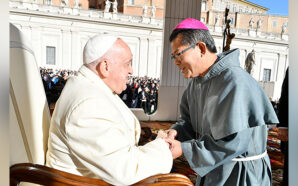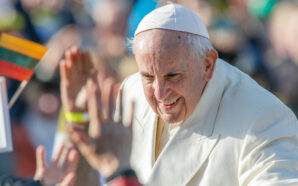The word “benediction,” derived from Latin, means to “wish well.” The benediction doesn’t pray or plead; it pronounces, with no need for performance, effort, or improvisation. There aren’t too many occasions of formal pronouncements in one’s life. A wedding ends in a pronouncement. People are pronounced dead. Yet every week, all over the world, there is this less noted pronouncement—this declaration that we are blessed. John Calvin described it as a “pledge of God’s good will.” The late Irish poet John O’Donohue referred to the words of a blessing as “an invisible cloak to mind your life.” At a time in my life when everything felt uncertain, it was a small container of certainty each week.
Whether it’s a sombre Good Friday service or the trumpets of Easter Sunday—a wake or a wedding—the benediction confers both the promise of a future and a surrender to its uncertainty. “Blessing means laying one’s hands on something and saying, Despite everything, you belong to God,” the theologian Dietrich Bonhoeffer wrote, from a Nazi prison. To stand in the back pew every week and receive the benediction, despite my grief, despite my own wilderness, felt subversive. In the face of mystery, as we put on our coats and gather our things, we are wrapping this “invisible cloak” around us. It’s enough to keep us warm.
To continue reading this article, click here.
Julia Cho is a writer published in The Atlantic, the Times, and the Washington Post, among others. She is currently working on a memoir.
With thanks to The New Yorker and Julia Cho, where this article originally appeared.








